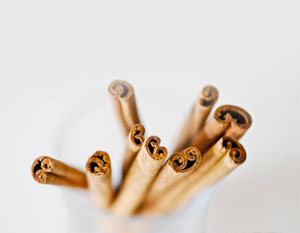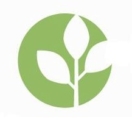Spices have been used in cooking for thousands of years – for flavouring, and also for healing.
They are the “original herbal medicine” and the fifth food group. 1
Studies are backing up the health perks of spicing up our food. With their accessibility and affordability, spices are a fantastic dual-purpose addition to any kitchen.
Not only are spices antibacterial and antiviral (plus a host of other health-enhancing properties), most contain more antioxidants than fruits and vegetables. “Just 1/2 teaspoon of ground clove is said to contain more antioxidants than 1/2 cup of blueberries.”2
Spices are simply powerhouses.

Winter is the flu season and living in Singapore doesn’t make us immune to the bug. Don’t get caught off guard – see how spices can help you nip that cold at the start.
What spices are commonly stocked in the kitchen that can also substitute in a pinch for fixing that niggling cough, or halting that soon-to-be cold?
Here is the low down – 5 tips from nutritionists and naturopaths:
5 Spices
① Cayenne Pepper
Anti-fungal, anti-bacterial, anti-inflammatory, and a blood regulator, cayenne pepper is the latest in superfoods.
Cayenne affects the venous structure of the body, assisting blood pressure and the overall circulatory system.
The famous “Cayenne Pepper Mouthwash” is very simple – at the glimpse of a sore throat, gargle with cayenne pepper and water every two hours.
② Turmeric
Proven to be an anti-cancer agent, turmeric has been used as medicine in Indonesia, China, and India for centuries. Turmeric contains Curcumin, which is a known antioxidant that is antibacterial, anti-fungal, and anti-inflammatory.
Known also as “haldi”, turmeric is considered a natural antibiotic.
For a cough and cold, add turmeric to milk or honey.
Juiced with oranges, you get a powerful drink with cellular renewal potential.
Fresh turmeric can be found at the markets.
③ Cinnamon
One of the most popular of spices, used in Ancient Egypt over 2000 years ago for medicinal purposes, cinnamon can be a powerful expectorant.
It not only releases phlegm and mucous, this spice can also assist in balancing blood sugar levels. The scent of cinnamon itself can increase brain activity.

With anti-microbial properties, cinnamon also acts against the growth of bacteria, yeast, and fungi.
Try a glass of warm water with a teaspoon of honey and a dash of powdered cinnamon.
④ Ginger
Originating in South East Asia, ginger is the King of spices for combating nausea, indigestion, and morning sickness.
Take juiced or brewed in water for a simple tea. Also an anti-inflammatory, a compress can be made with ginger to alleviate pain and headaches.
⑤ Raw Garlic
The key compound in raw garlic is an amino acid called allicin. By crushing a raw garlic, allicin can be created, which can reduce cholesterol, and is highly antibacterial.
Research has also shown garlic to be a natural antibiotic.
Chewed raw at the onset of a cold, or crushed into a fresh squeezed juice can boost immunity.
What Therapy Tip: Always get raw ingredients over dried whenever possible. Raw garlic, ginger, and turmeric are readily available in markets throughout Singapore. For organic versions, try Eat Organic. For more on why spices are super, check out “7 Super Spices for Super Health”.
1 Spice Up Your Health – The Fifth Food Group by Dr Lisa Watson, ND.
2 Adding Spice for a Healthier Life by Megan Tempest, RD in Today’s Dietician.

